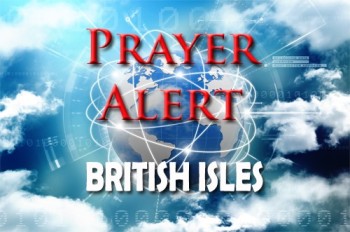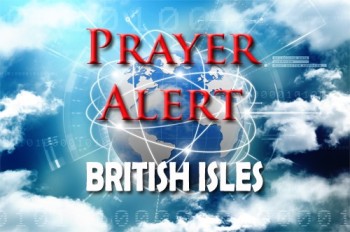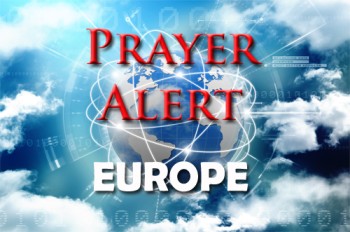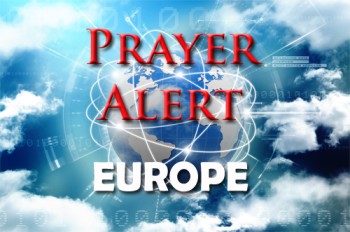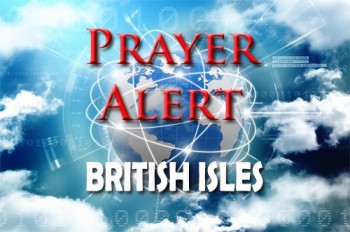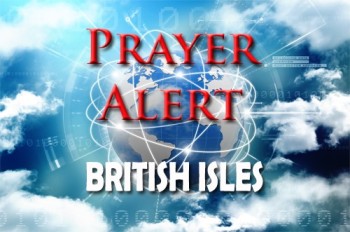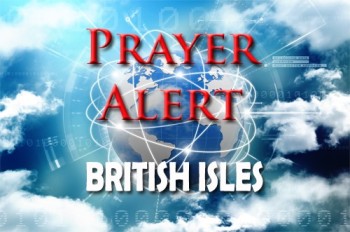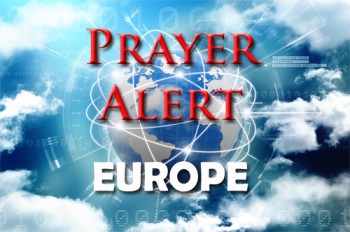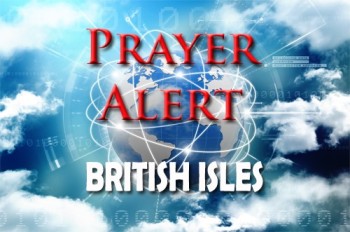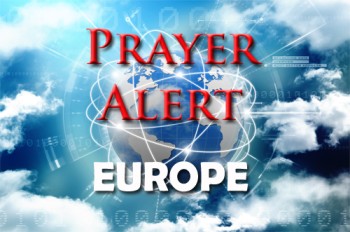Displaying items by tag: Russia
Roman Abramovich will sell football club
It was announced on 2 March that Roman Abramovich wishes to sell Chelsea Football Club. He says he will donate the proceeds from the sale to a foundation ‘for the benefit of all victims of the Ukraine war.’ Swiss billionaire Hansjorg Wyss was given the chance to buy Chelsea. MP Chris Bryant revealed that Abramovich is selling his UK home and another flat, telling the House of Commons that he is ‘terrified of being sanctioned’. He is owed £1.5billion by Chelsea after buying it in a £140m deal in 2003, but he will not ask for any of the loans to be repaid; the sale will not be fast-tracked but will follow due process. Onlookers say that although Abramovich may want to sell Chelsea, he may not be allowed to; it depends on what the Government decides to do in the coming days and weeks. If his assets are frozen, he cannot do anything. His company Evraz continues to trade on the stock market: see
Seeds of prayer
This issue departs from core concerns to pray for Ukraine. Agriculture is the largest sector of Ukraine's economy (10% of GDP and 41% of total exports in 2021). Ukraine supplies 10% of the world’s wheat; Russia a further 18% . The war and sanctions will severely disrupt Ukrainian and Russian agricultural production and trade, with profound effects on national and global food supplies, especially hitting lower-income countries reliant on imports from these countries. It will also impact farming and food in the UK. Pray for Ukrainian and Russian farmers, and for all whose livelihoods rely on farming and food production in every country affected. The bishops of the Ukrainian Orthodox Church (USA) have issued this prayer: ‘We beseech Your lovingkindness and abundant blessings upon the nation - the people - of Ukraine during these days of great danger to their safety and wellbeing’.
Russia: Kremlin 'considering imposing martial law'
The Kremlin is considering imposing martial law on its own citizens, the EU suggests. Russia's economy has descended into turmoil. The rouble is at a 10-year record low, anti-war protests continue in Moscow and St Petersburg, and the bloc was picking up speculation on social media about potential Russian plans, which it said would be ‘completely home-produced’. At a morning press conference, foreign minister Sergei Lavrov accused Western politicians of considering nuclear war, and said Moscow would press on with its military operation in Ukraine ‘until the end’. Ukraine Christians have matured over the years of fighting for freedom for their country and are depending on help from God more than support from America or Europe. In Russia, Christian revival is already growing despite much pressure from state authorities. Father God, we ask You to bring about Your outcome to this crisis. Replace error with truth and where there is darkness bring Your light.
Russian prisoners of war
Russian soldiers speaking in videos posted to the Ukraine security services' Facebook page warned, 'We're killing peaceful people'. An injured soldier sitting in front of a Ukrainian flag said, 'This is not our war. Mothers and wives, collect your husbands. There is no need to be here’. Other footage shows a handcuffed Russian prisoner crying over the death and destruction wrought by the war, saying, 'They don't even pick up the corpses, there are no funerals'. At least one of the soldiers urged Kyiv and Moscow to evacuate children from the warzone while another warned, 'No-one wants war'. Six days after Moscow ordered its forces into Ukraine, a Russian soldier texted home telling his mother, ‘All I want now is to kill myself. We were sent as cannon fodder.’ Weeping Russian POWs say they had no idea they were being sent to war, and said they were made 'to attack people defending their territory'.
A British prayer for Ukraine from Psalm 82
You are a God of justice,
the one who rules in righteousness.
You sweep away oppression,
by a high and mighty politician.
Lord, remove abuse of power,
let the cunning plan turn sour.
May Your angel armies win the day
as your people faithfully watch and pray.
Ways the UK could shake Putin
For Global Britain to be credible it is time for its architect, Boris Johnson, to intervene with retribution tactics not deterrence. Closing Russia’s embassy and removing their diplomats while removing ours from Moscow would indicate a fundamental shift in the understanding of Russia as not a partner in diplomacy, but a threat to other nations. Russian state outlets in the UK, like Russia Today, spouting propaganda masquerading as journalism, should be shut down immediately to prevent misinformation. Those operating in politics, law, and media while representing Russian state interests should be forced to declare who is paying their bills. Visas should be cancelled and assets of everyone linked to Putin’s regime frozen. Of all the economic sanctions, cutting Putin’s regime off from SWIFT international payment system would remove Russia’s ability to make international transactions, trigger capital outflows and currency instability, and hit buyers of Russian oil and gas.
PM: Russian attack is catastrophe
Russia's invasion of Ukraine is a ‘catastrophe for our continent’, said Boris Johnson. He chaired an emergency Cobra meeting on 24 February and gave a televised statement after Russian forces launched an assault on Ukraine, crossing its borders and bombing military targets near big cities. He outlined new sanctions against Russia in the Commons and said on Twitter that he would also speak to his fellow G7 leaders. He called for an urgent meeting of all NATO leaders as soon as possible. In a phone call with Ukrainian president Volodymyr Zelensky, Mr Johnson vowed the West ‘would not stand by as Putin waged his campaign against the Ukrainian people’ and tweeted earlier, ‘Putin has chosen a path of bloodshed and destruction by launching this unprovoked attack on Ukraine.’ Foreign secretary Liz Truss has demanded that the Russian ambassador explain Russia's ‘illegal, unprovoked invasion of Ukraine’.
Ukraine: no other path than NATO
Ukraine’s president has said joining NATO would guarantee his country's security. He says it will not be easy, but there is no other path for Ukraine. The UK's defence secretary, Ben Wallace, said Russia will be judged by its actions. ‘We've seen the opposite of some of Russia’s statements. We've seen an increase of troops over the last 48 hours up to 7,000, we've seen a bridge constructed from Belarus into Ukraine - or near Ukraine. At the moment Russia’s troop build-up continues.’ Wallace says NATO is united and is ‘deadly serious on how we're going to face the threat being posed to Ukraine and potentially our security’. Speaking after a meeting of defence ministers, he says it's becoming ‘tragically normal’ for Russia to use ‘malign activity and threats to try and get its way’ and Europe has to respond to that, adding, ‘This is a real challenge to the stability of Europe.’
NATO and Russia / Ukraine crisis
On 10 February Boris Johnson met the head of the NATO defence alliance in Brussels and then travelled to Poland in support of NATO allies. He warned that the Ukraine-Russia crisis is at its ‘most dangerous moment’ and that war would be an ‘absolute disaster’. Russia is still massing troops on its neighbour's borders and in Belarus. In Moscow Liz Truss, the Foreign Secretary, said that continued ‘aggression’ will lead to ‘severe consequences’, but at the same news conference her Russian counterpart Sergei Lavrov accused the West of ‘hysteria’. Moscow wants the West to rule out Ukraine ever joining NATO - but Boris Johnson said that every European democracy must retain that right. Johnson warned that the possibility of an invasion ‘remains grim.’
European shuttle diplomacy
On 7 February President Macron travelled to Moscow and then to Kyiv, to meet the presidents of Russia and Ukraine and seek a diplomatic solution to the crisis. At the same time, German chancellor Olaf Scholz was in Washington aiming to convince Joe Biden to trust him despite being wishy-washy on Russia. On 10 February Boris Johnson went to Brussels. In the week beginning 14 February, Scholz will meet Vladimir Putin himself. Despite Scholz’s doveish approach to Russia threatening European unity, France, Germany, and the US are still allies. Many believe the scenario of Macron keeping Scholz and Biden out of the loop on his talks with Putin and Zelensky is as unlikely as the German chancellor cutting a deal with Biden behind Macron’s back.
